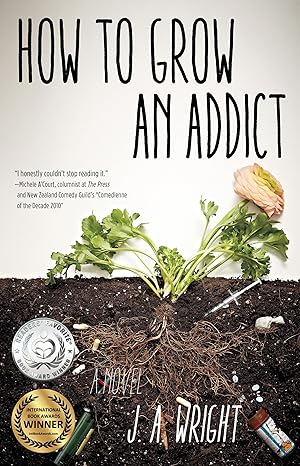How to Grow an Addict
Randall Grange, the main character of J. A. Wright’s How to Grow an Addict, is a sensitive and perceptive girl born into the wrong family. Her father is a drunk, insensitive lout. Her mother is, for the most part, too weak to stand up for her, and her older brother, whom she initially idolizes, is a petty, nasty, mean spirited bully.
Randall is earnest, open-hearted and accepting. She tells her story almost as a reporter would, without sentiment or self-pity. The reader develops a deep sympathy for her, and Wright does an excellent job of conveying the addict’s sense of isolation, shame and loss.

I knew too many people like this, from families like this, when I was growing up. The guys often wound up in prison. The girls wound up like Randall, on the losing end of every bad situation. It hurts to read what went into making a person like this. Randall’s family failed her on every level. Some people are so lacking in self-awareness and compassion, they have no business having children.
This story opens with Randall wondering why she’s in an addiction treatment center, and then the book backs up to describe how she got there. It’s a brutal journey. In the end, it circles back to the beginning. She’s sure she was sent to rehab by mistake. She’s sure she doesn’t have a problem. At least, not one that can be solved by drug counseling.
Eventually, she begins to see in herself what the reader sees all along: that she’s a good person who has taken a number of wrong turns, that her fundamental decency has not been corrupted by the horrors of her life, and that she still has time to turn her life around.
This is a book of hope and hard-won redemption. Nothing is sugar-coated. The counselors in rehab are clear-eyed, hard-nosed, and compassionate. They know that most of their patients are going to relapse, and most will probably die of their disease, but they keep at it because once in a while a patient like Randall comes along who, even though she doesn’t know what she needs, has the inner resources to pull through.
The psychologist M. Scott Peck once said that addicts were seekers who took a wrong turn on the road to God. You see that here in Randall. She’s a seeker who’s been thwarted by the circumstances of her life and led into trouble by the drugs that cloud her judgment and compound her errors, but she never gives up.